Hydroponics System
Hydroponics IoT Project
Compact IoT-powered hydroponics system built inside my KFUPM dorm. I cultivated lettuce, oregano, lavender, and broccoli microgreens using a vertical PVC frame, reservoir, and automated lighting schedule. The setup included sensors for pH, EC (salinity), temperature, and humidity to maintain ideal growing conditions.
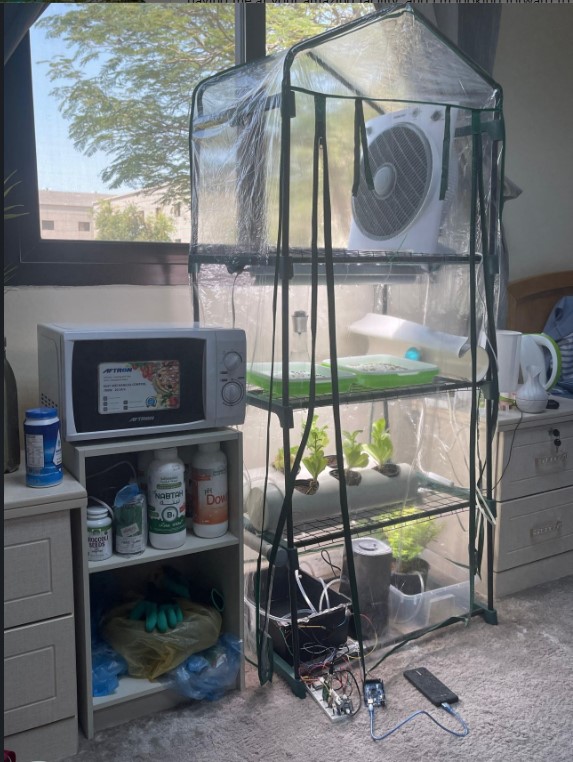
The system’s microcontroller managed lighting and sensor feedback, logging data for calibration. Nutrient dosing was manually adjusted to maintain soil-like balance. Below are the core sensors and dosing setup used.
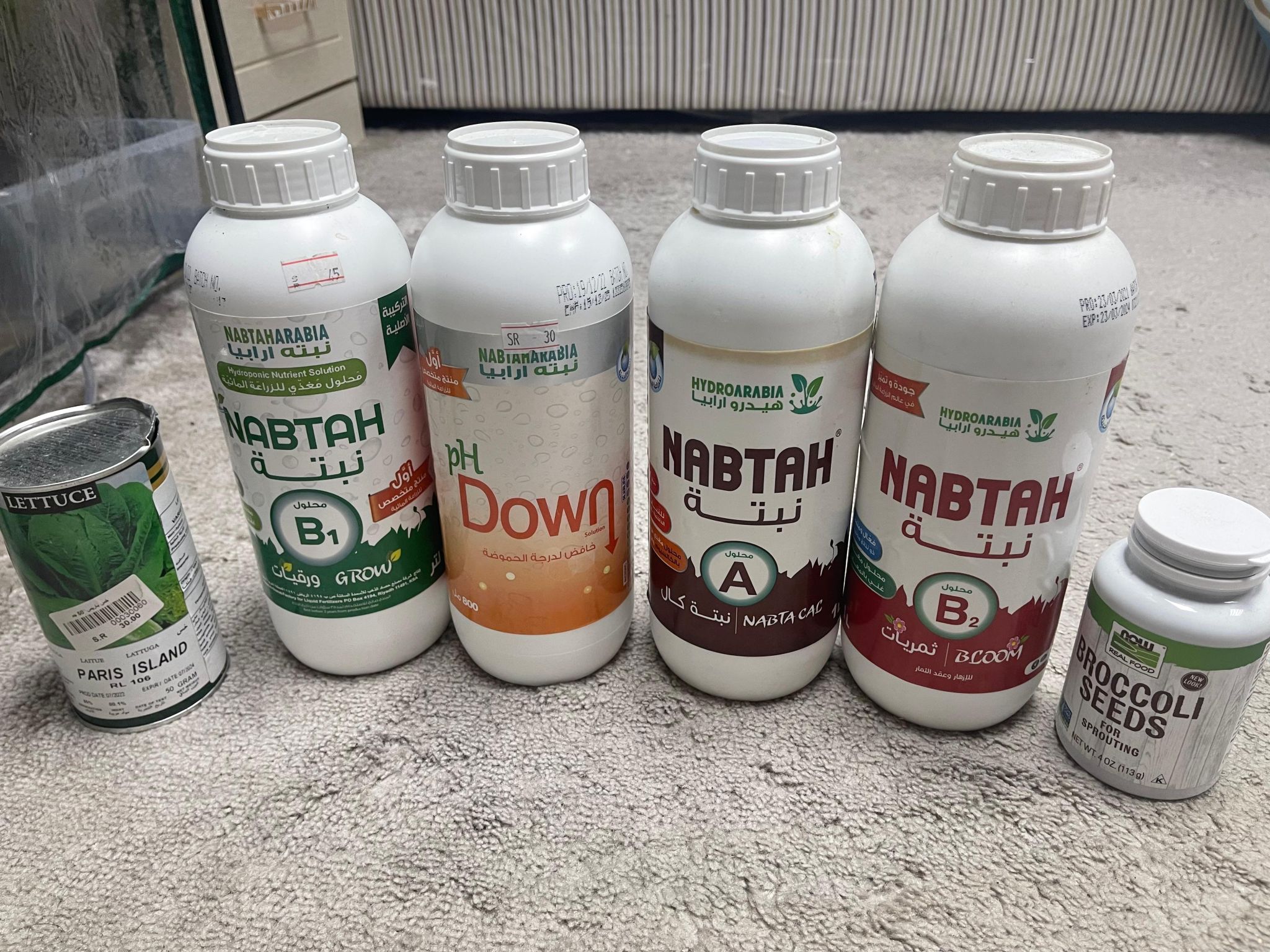
The system successfully maintained environmental stability for lettuce, oregano, and lavender. Lighting cycles were tuned to simulate natural daylight, resulting in steady growth.
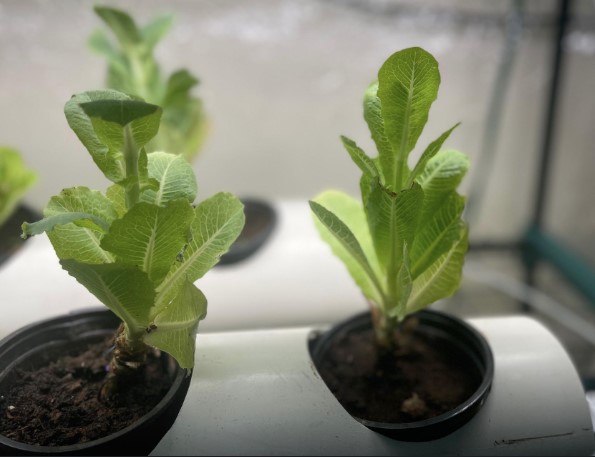
I also cultivated broccoli microgreens using the same system — rapid 9-day cycles with consistent tray coverage and healthy yields.
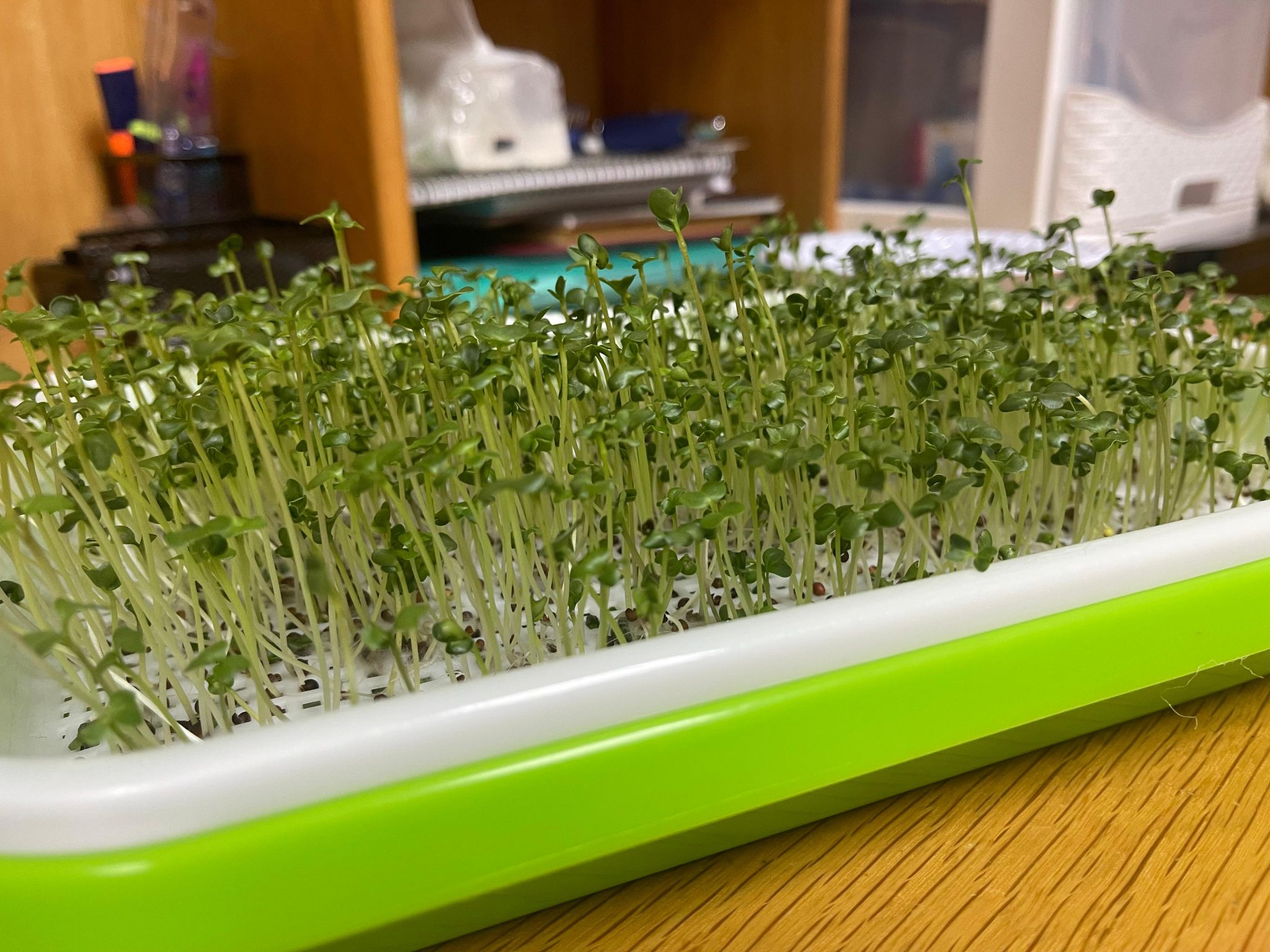
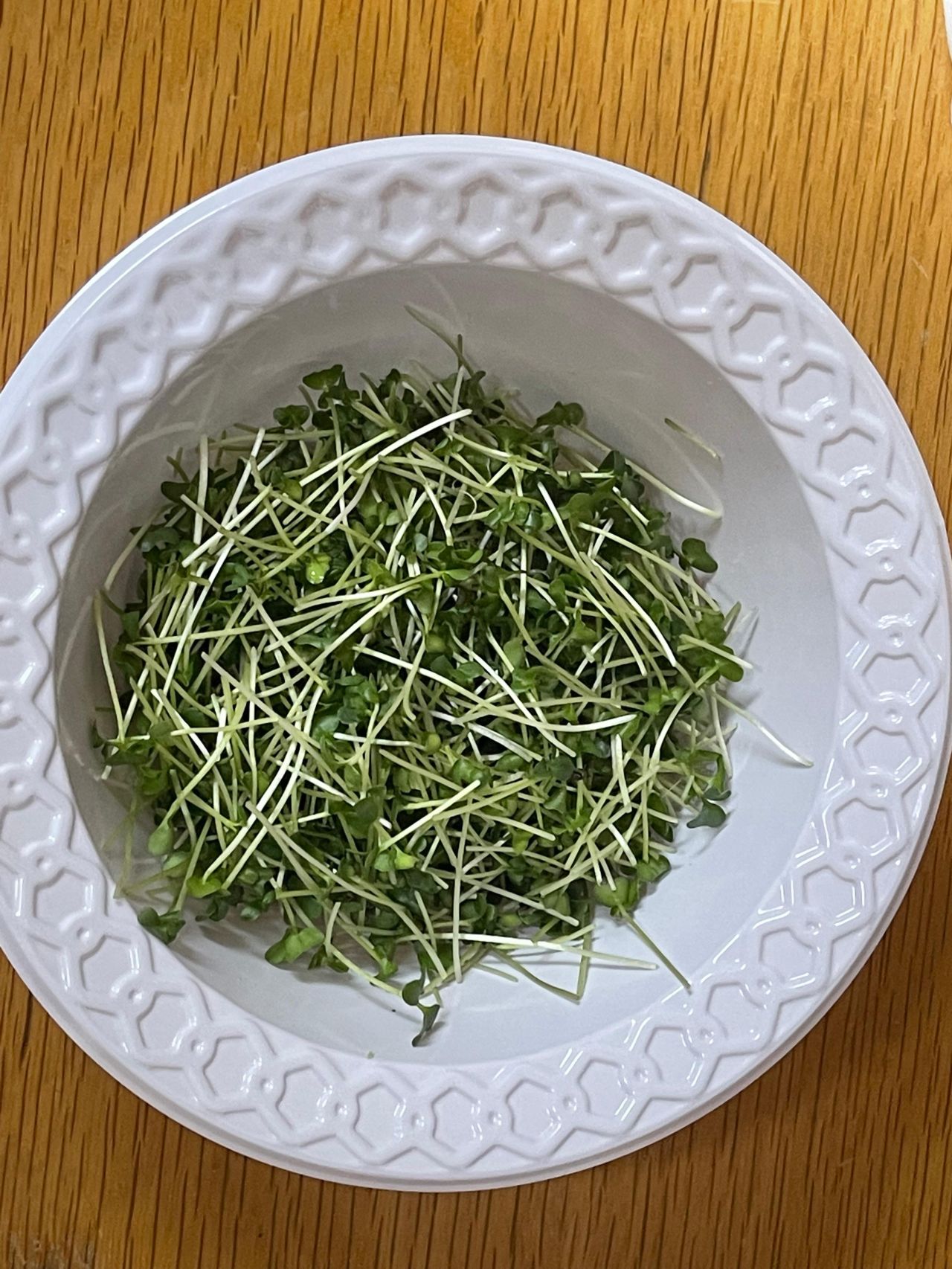
Additional herbs such as thyme and lavender were grown in parallel trays to test different EC and nutrient levels.
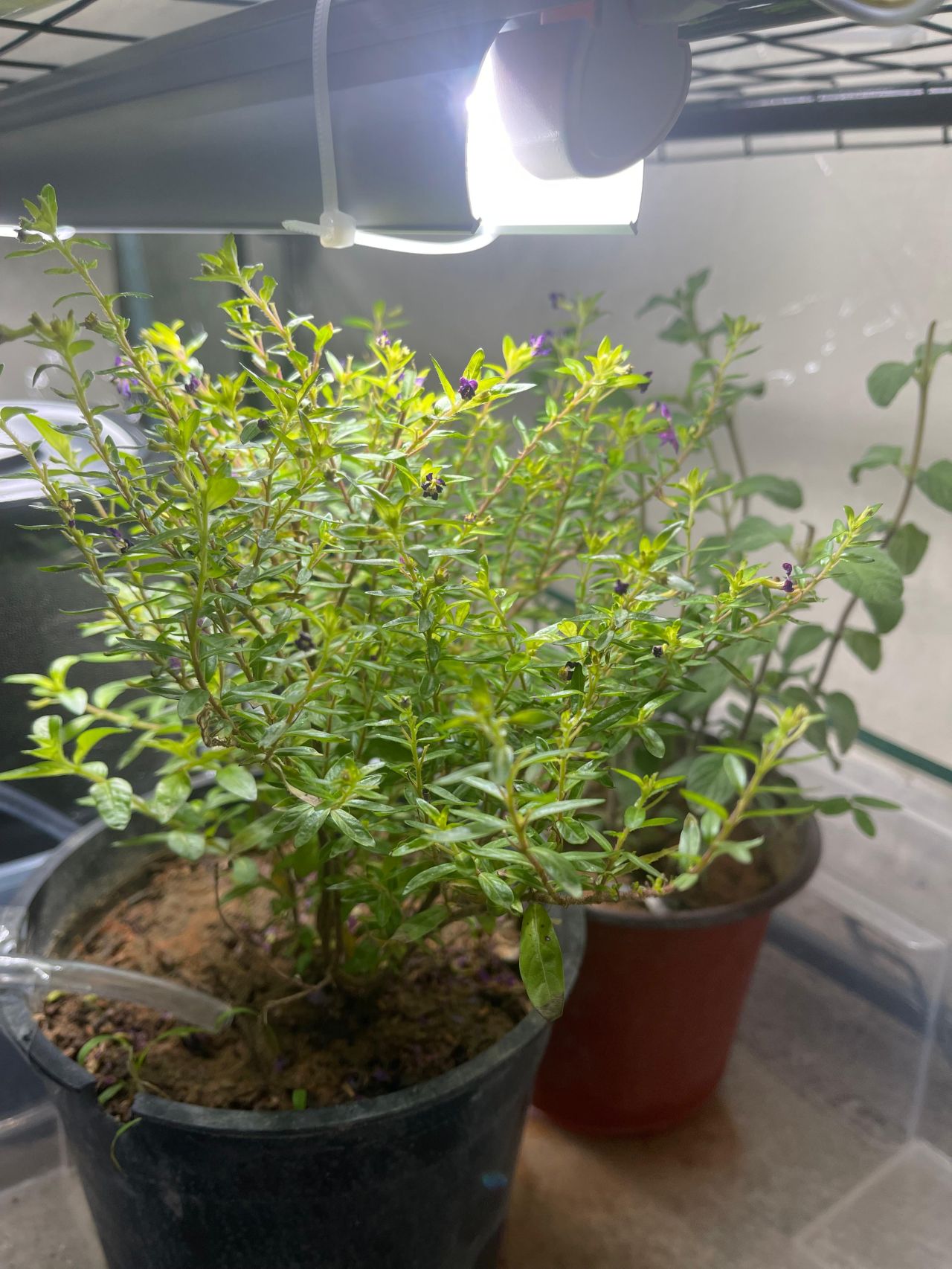
To better understand industrial scalability, I visited Bather Farm in Riyadh with guidance from Abdallah Radi. This visit helped me benchmark my system’s efficiency against commercial setups.
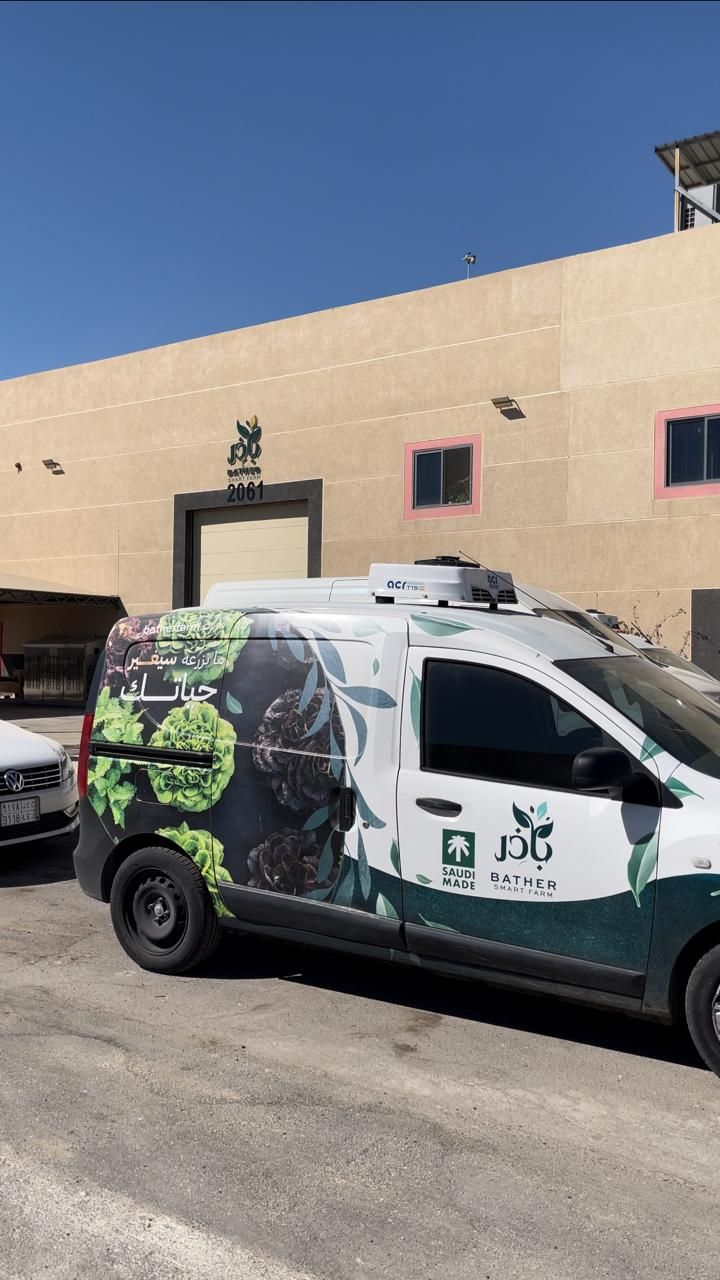
Key Results
- Consistent lettuce and herb growth (oregano, lavender, thyme).
- Microgreens harvested every 9–10 days with stable quality.
- Minimal maintenance and reliable operation in dorm environment.
What I Learned
- Balancing pH and EC schedules for various crops.
- Importance of ventilation and humidity control.
- Iteration between manual dosing and automation design.
